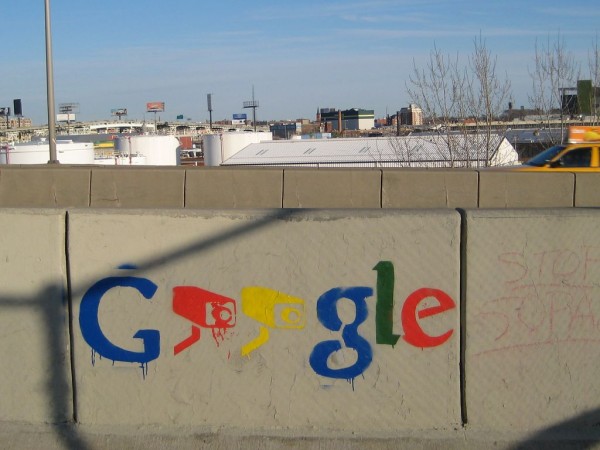In a previous post, I discussed the idea of avoiding closed software, and specifically, how to quit using products tied to the Cloud made by Google or Apple.
There’s also privacy and security concerns using third-party cloud vendors like Dropbox and Evernote.
One solution would be to rent your own NextCloud server, which would at least break you free of Google or Apple, but still ties you to a third-party cloud vendor.
The only way to be completely free of these companies (or any third-party company) and still have the convenience of Cloud connectivity is to run your own Cloud server. But once you have a cloud server set up, the rest is shockingly simple.
I’ve done this using ownCloud, and I’ll be covering how to do that in another article. It only cost me $75 for a refurbished Dell desktop tower, and some time and energy learning how to do it. The hardest part was configuring Apache’s SSL redirects through arcane and ancient nested text config files (which is fodder for yet another how-to article).
As a side note:
Hey, Apache, can you guys come up with a better config solution that that? It sucks for regular non-programmer people like me. Am I supposed to just automatically know which config file overrides which? Ugh. Fix that, please.
The Alternatives
I’ve been gradually replacing all of my Cloud apps with open-source alternatives, mostly tied into my OwnCloud box. Here’s a list of things I’ve already replaced and am using on a regular basis:
- Google Chrome-
I replaced this with Brave and Firefox quite a while ago (on my desktop and my phone). Brave and Firefox both use plugins for bookmark and password management. Firefox seems to have better media support, but Brave is more secure. If you don’t like Firefox (because of their business practices) you can also use the open-source forks of Chrome or Firefox, which are Chromium and Palemoon, respectively. - Google Keep/Evernote-
This function is handled by OwnNote. It syncs to my server, stores notes offline, and is free. (NOTE: the Android app is available on Google Play, but you can download it from other sources like F-Droid). If I wanted to, I could also use NixNote on the desktop, which has more features. - Play Store (Apps)
I’ve been testing out F-Droid as an alternative. Obviously, there’s some things I’ve paid for that I can only get from the Google Play store, but you can open those in a browser and download the .apk file, copy it to your phone, and install it from there. Not sure how to get around in-app purchases yet, but… I’m working on it. - Play Store (Music)
Did you know Google tracks everything you play through their app? And you can’t turn that tracking off. Again, I’ve paid for a lot of music from Google’s Play Store (and Amazon’s as well). And the only unlimited way to download/upload your library is to use their horribly broken and buggy Desktop Google Music program. I will probably just load everything into OwnCloud, and point my music player apps there. I can always sync my playlist that I want to listen to offline with another app- and it turns out there’s quite a few. - Google Maps
This one’s another app I use all the time, and I wasn’t sure if there was a good way to replace it. Specifically, I use Google’s directions. I’m currently using OpenStreetMap, and it seems to be working very well. - Google Docs
This is actually pretty well covered by OwnCloud’s Documents plugin. You’ll still need some sort of doc viewer on Android. I’m currently using Libre Office (on desktop and on Android) and it does a very good job… and it’s free. - Gmail
You can of course use the built-in Android email client to read your Gmail (and all your other accounts), and ditch the Gmail app itself (this is what I do). - MyTracks
Lol, just kidding. Google killed off MyTracks (one of the best fitness apps out there) for no good reason. But I’m already a Strava/Endomondo/MapMyRide/RideWwithGPS user, so why not use one of those? Frankly, I don’t really need any cloud connectivity for it at all. If I can use MyTracks and block it from accessing the internet, then it’s local-only… and I that’s all I need. - Google Hangouts
According to Google, they’re shutting down Hangouts for non-commercial users to force adoption of their new messaging app, “Allo.” (Note: They finally are calling Allo a failure, and are migrating the predictive Assistant features into their SMS/RCS app, Messages. I don’t really care what they say they’re going to do to support existing Hangouts users, because the whole plan is to get away from connecting to Google completely. I’m looking at Signal as an alternative, but until I get more people to adopt it, it’ll be slow. Another possibility is GroupMe, but it’s owned by Microsoft (as part of the Skype family) so that’s a definite no from me. - Google+
Sadly, I’ve already pretty much written off Google’s social media attempt, along with everyone else. It was actually a very usable platform, but because everybody uses Facebook, it never took hold. I’ve had to increasingly take up using group-specific apps like Discord and Slack. The problem with these is that it’s at the group’s discretion as to which app to use, so there’s no guarantee you’ll like whatever they’re using. Other attempts at social media, like Gab and Diaspora, just haven’t taken hold.
On a good note though, Discord and Slack can take the place of Messenger, so they’re looking like good options. They’re not 100% secure, but much better than anything Google or Microsoft has to offer.
There are many more apps than this, but it’s a good start. If you’re looking to de-Google your life, consider this a good place to start.

